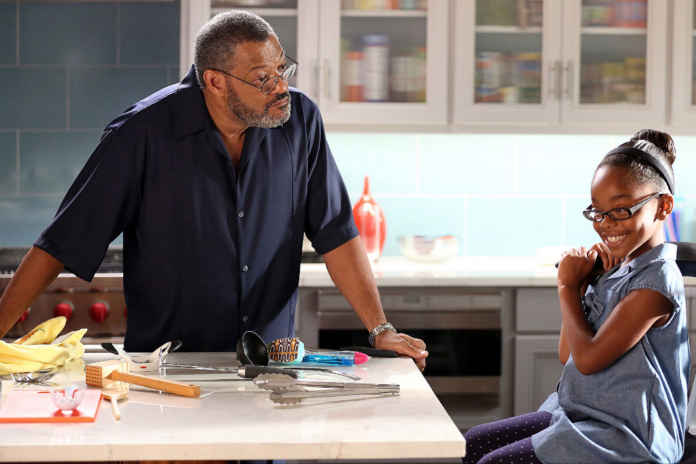Father’s Day is a time to celebrate the special men in our lives who furnish us with bad jokes and good advice. But in the Black community, Father’s Day has become a time fret about the impact that fatherlessness is having on our community.
I am so tired of people – and by people, I mean Black conservatives, white conservatives, well-meaning white liberals, “concerned” Black men, and anyone else – blaming fatherlessness for all that is wrong in the Black community.
The fatherlessness narrative isn’t fully rooted in reality. It is true that just over 72 percent of African American children are born to unmarried parents. However, when cohabitating parents, stepfathers, and other living arrangements are considered, the number of Black children living without a father drops to about fifty percent. While this number may seem high, non-custodial Black fathers spend more time with their children than fathers of other races. So, the number of Black children who are truly fatherless is much lower than reported.
The fatherlessness argument also ignores the Black family structure. Traditionally, our families have been intergenerational and have leaned on one another for support. If a child is truly fatherless, it is likely that there is a grandfather, uncle, or cousin willing to provide care and support. The absence of a father does not necessarily mean a complete absence of male guidance.
The fatherlessness argument is also a subtle way to blame Black women for the plight of the Black community. This may seem counterintuitive, but it is a short jump from “there are no fathers” to “these women are failing at raising our youth.” Even more troubling, the not-so-subtle implication of the fatherlessness argument is that if Black men somehow returned to their “rightful” place in the family, the problems facing the Black community would immediately disappear. This logic is extremely insulting to Black women. Black women have been the backbone of our race for centuries. Though we rarely get credit for it, we have been at the forefront of every movement to uplift our race from abolition to Black Lives Matter. To argue – even indirectly – that Black women are the reason the race is failing is a grave insult.
Finally, blaming fatherlessness for the woes of the Black community lets the real culprit off the hook. The problem for the Black community is not a lack of marriage liscenses, but an excess of racism. Structural racism is at the root of every evil the Black community faces. Yes, each person should take responsibility for his or her own choices. However, we cannot ignore the fact that racism reduces most choices to an option between rocks and much hard places. Perhaps marriage rates would be higher in the Black community if Black men were not incarcerated at such high rates, or if Black men earned as much as their white counterparts. Racism, not responsibility, is where our efforts must be focused.
For those that doubt the role of racism, I offer two points in support.
In 1960, roughly two-thirds of Black children lived in two parent homes – almost the exact inverse of today’s statistics. Also in 1960, African Americans could not vote, could not stay in certain hotels or restaurants, and could not move into certain neighborhoods. Our high marriage rates did not translate into political rights. Do those touting fatherlessness as the cure-all truly believe that if every Black child came from a married home that we would never again hear about police officers shooting an unarmed Black child, or chocking a suspect until he yells, “I can’t breathe?” I doubt that this is the case.
Second, the percentage of Latino children living in two-parent homes is about double that of African American children. Yet, the number of Latino children in poverty is only slightly lower than that of African Americans. If marriage was a social silver bullet, shouldn’t Latinos have a lower poverty rate? Moreover, why is it that married Black and Latino couples have half the wealth of white single parents? Perhaps the structural racism that affects people of color is the real culprit after all.
This Father’s Day, the Black community should celebrate all fathers and father-figures in our lives. Our time would be better spent buying hideous ties than worrying about how “fatherlessness” is destroying our community.
Attorney Nareissa Smith is a former law professor and a journalist who writes about racial and gender justice issues including law, health, and education. She is a graduate of Spelman College and Howard University School of Law. You can reach her at nareissa.smith@gmail.com or contact her via Twitter (@NareissasNotes).











